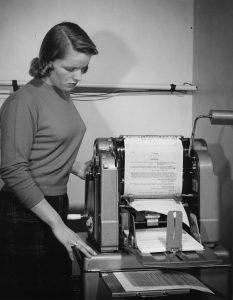An Ontario judge has laid down the law on technology competence, ruling in no uncertain terms that every lawyer has a duty to keep pace with changing technology, and that a lawyer’s discomfort with new technologies — in this case, video depositions — is no excuse for reverting to pre-pandemic methods.
“With the current pace of change, everyone has to keep learning technology,” wrote Justice Frederick L. Myers of the Ontario Superior Court of Justice. “Counsel and the court alike have a duty of technological competency in my respectful view.”
The ruling is significant beyond the immediate dispute in which it was issued. Until now, neither the Law Society of Ontario nor any Ontario court decision had expressly imposed a duty of technological competence on Ontario lawyers.
Related: U.S. states that have adopted the duty of technology competence.
In 2019, the Federation of Law Societies of Canada added technology competence to its Model Code of Professional Conduct. While several provinces and territories have adopted that rule, Ontario is not one of them. (See, Duty of Tech Competence Comes to Canada.)
In-Person v. Video
The ruling came in a case, Worsoff v. MTCC, in which the plaintiff sought to conduct in-person examinations for discovery (similar to depositions in the U.S.). The defendant objected, citing the continuing pandemic, and asked that the examinations instead take place by video conference.
But the plaintiff insisted on an in-person examination, according to the court’s opinion, arguing that, “in his view it is the ‘best’ method to conduct an examination well and properly.”
Justice Myers would have none of plaintiff’s argument. He listed a litany of ways in which video proceedings can enhance access to justice, including:
- “If the cost of participation can be decreased for parties and counsel by use of remote methods, access to justice will be improved.”
- “Arrangements so that litigants do not have to take a full day off work; drive downtown and pay $40 or more for parking; or take the bus for 90 minutes each way; are real savings that promote participation and access to justice.”
- “If a lawyer can avoid travel and waiting time because she is working at her desk until she signs-on to a virtual examination or hearing, transaction costs are decreased for clients.”
- “Avoiding paying a lawyer to come to Toronto or to go to another place is also a significant cost savings for a client through virtual proceedings. Lawyers can participate in proceedings in multiple locations on the same day virtually. The increase in efficiency in their practices is substantial.”
He acknowledged that there are also shortcomings to virtual proceedings, particularly where participants do not have the necessary technological resources. But such shortcomings were not issues in this case, he said.
“The state of the art is evolving. Some real changes are happening with the potential to actually improve access to civil justice for the public. I do not accept that the pandemic is over so we should all just go back to the way it was. That assumes that the ‘good old days’ were actually good.”
A2J Trumps Comfort
Given this, Justice Myers turned to plaintiff’s assertion that a presumption exists that examination in person is the best way to examine a witness.
“Au contraire I say. Efficiency, affordability, and enhanced access to justice trump counsels’ comfort and presumptions every time.”
He then went on to deliver the meat of his ruling:
“With the current pace of change, everyone has to keep learning technology. Counsel and the court alike have a duty of technological competency in my respectful view. Older judges and counsel may be behind younger counsel and the rest of society who use computers with greater regularity and sophistication than we do. But everyone in the civil litigation system in Ontario has had to learn to use the Civil Submissions Online portal and Caselines for example.
“Technological change affects everyone. Once upon a time, I had to learn how to use a Gestetner (Google it) and then a fax machine. I do not accept that in person is just ‘better’. It can be in some cases. But if counsel just prefers it because he or she is more comfortable with it, ought we to reject the printer because I liked my Gestetner (and Word Perfect for that matter)? The balance of convenience favours easier and more convenient processes with accompanying cost savings.
This is not the first time Justice Myers has expressed strong feelings about the need for lawyers to adapt to modern technology. In a May 2020 ruling, he ruled against a lawyer who objected to holding a mini-trial by video conference.
“In my view, the simplest answer to this issue is, ‘It’s 2020’. We no longer record evidence using quill and ink. In fact, we apparently do not even teach children to use cursive writing in all schools anymore. We now have the technological ability to communicate remotely effectively. Using it is more efficient and far less costly than personal attendance. We should not be going back.”
No more Gestetners. No more quills and ink. No more “good old days.” Lawyers who cling to the past would do well to pay heed to Justice Myers’ words.



